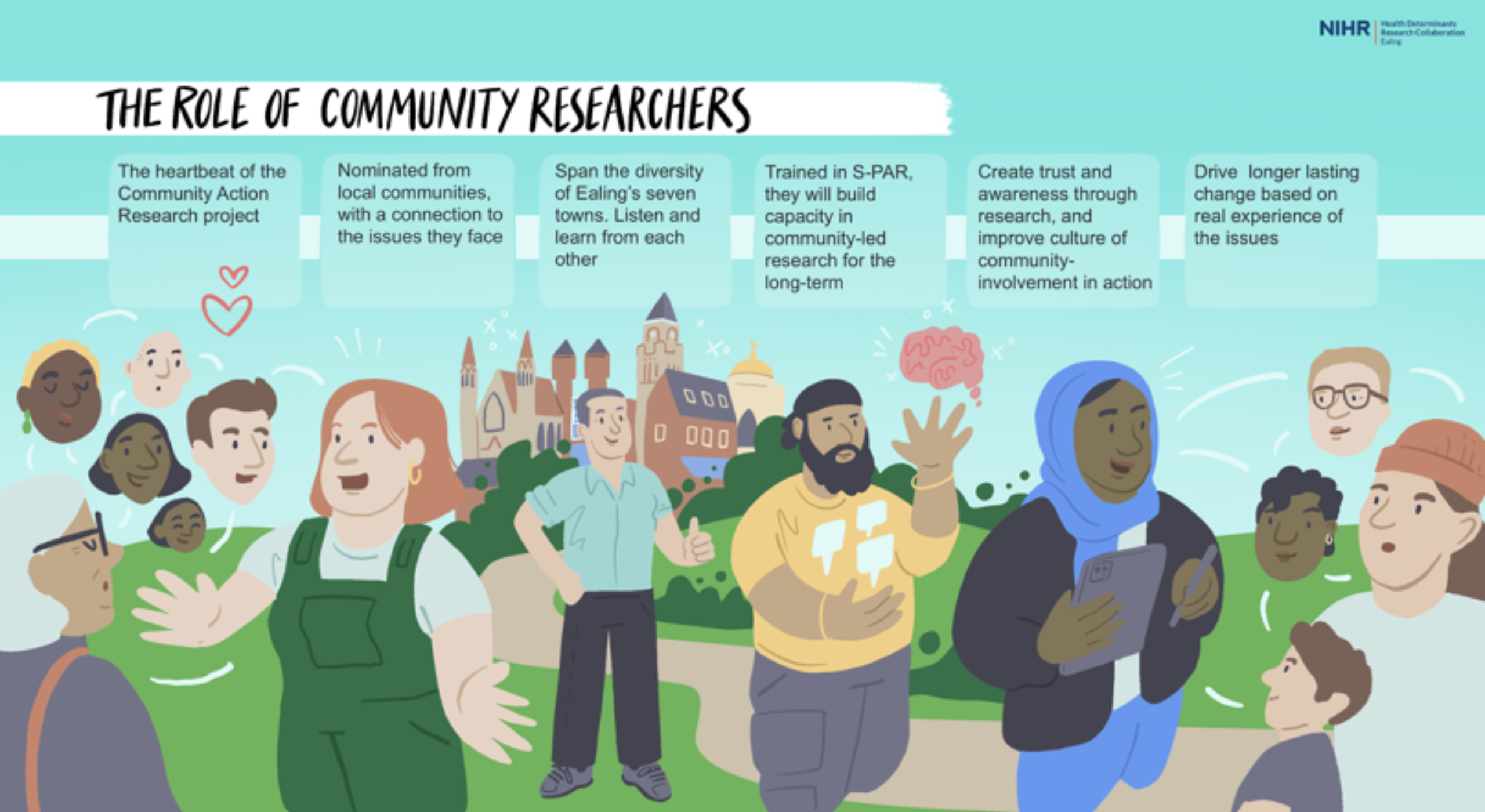
Led by the London Borough of Ealing council, the Health Determinants Research Collaboration (HDRC) aims to embed a research culture within the council to ensure policy decisions are better informed by evidence. The programme brings together academic, community sector, and local government partners, working alongside local residents to create fairer and healthier communities. To do this HDRC seeks to reduce health inequalities by focusing on understanding and strengthening the ‘building blocks of health’ i.e. the wider social and environmental factors that impact health outcomes.
The programme comprises several workstreams focusing on data integration, training and capacity building, action and evaluation, foundational structures and research partnerships. IDS leads on the community-based participatory research workstream, which involves establishing and accompanying a Systemic Participatory Action Research (S-PAR) process. S-PAR is a process which generates knowledge about how issues happen within wider systems, and identifies gaps, questions and priorities for collaborative action towards change. S-PAR values and centres lived experience. In the first year of the project, 23 Ealing residents will be trained as community researchers who have collected and analysed stories from people in their communities. These stories will be used to create a visual map depicting connections between systems, helping community researchers identify the key priorities to take forward into action research groups. The S-PAR process aims both to equip local residents with transferable research skills, and to put the issues that matter most to people living in Ealing, at the heart of the programme. The IDS team also provides training and support in S-PAR to council officers. Over 5 years, the programme will build capacities, skills and processes for the London Borough of Ealing to work collaboratively with residents and to employ community-led research and evidence to inform decision making.
Read more
Led by the London Borough of Ealing council, the Health Determinants Research Collaboration (HDRC) aims to embed a research culture within the council to ensure policy decisions are better informed by evidence. The programme brings together academic, community sector, and local government partners, working alongside local residents to create fairer and healthier communities. To do this HDRC seeks to reduce health inequalities by focusing on understanding and strengthening the ‘building blocks of health’ i.e. the wider social and environmental factors that impact health outcomes.
The programme comprises several workstreams focusing on data integration, training and capacity building, action and evaluation, foundational structures and research partnerships. IDS leads on the community-based participatory research workstream, which involves establishing and accompanying a Systemic Participatory Action Research (S-PAR) process. S-PAR is a process which generates knowledge about how issues happen within wider systems, and identifies gaps, questions and priorities for collaborative action towards change. S-PAR values and centres lived experience. In the first year of the project, 23 Ealing residents will be trained as community researchers who have collected and analysed stories from people in their communities. These stories will be used to create a visual map depicting connections between systems, helping community researchers identify the key priorities to take forward into action research groups. The S-PAR process aims both to equip local residents with transferable research skills, and to put the issues that matter most to people living in Ealing, at the heart of the programme. The IDS team also provides training and support in S-PAR to council officers. Over 5 years, the programme will build capacities, skills and processes for the London Borough of Ealing to work collaboratively with residents and to employ community-led research and evidence to inform decision making.
Read less


